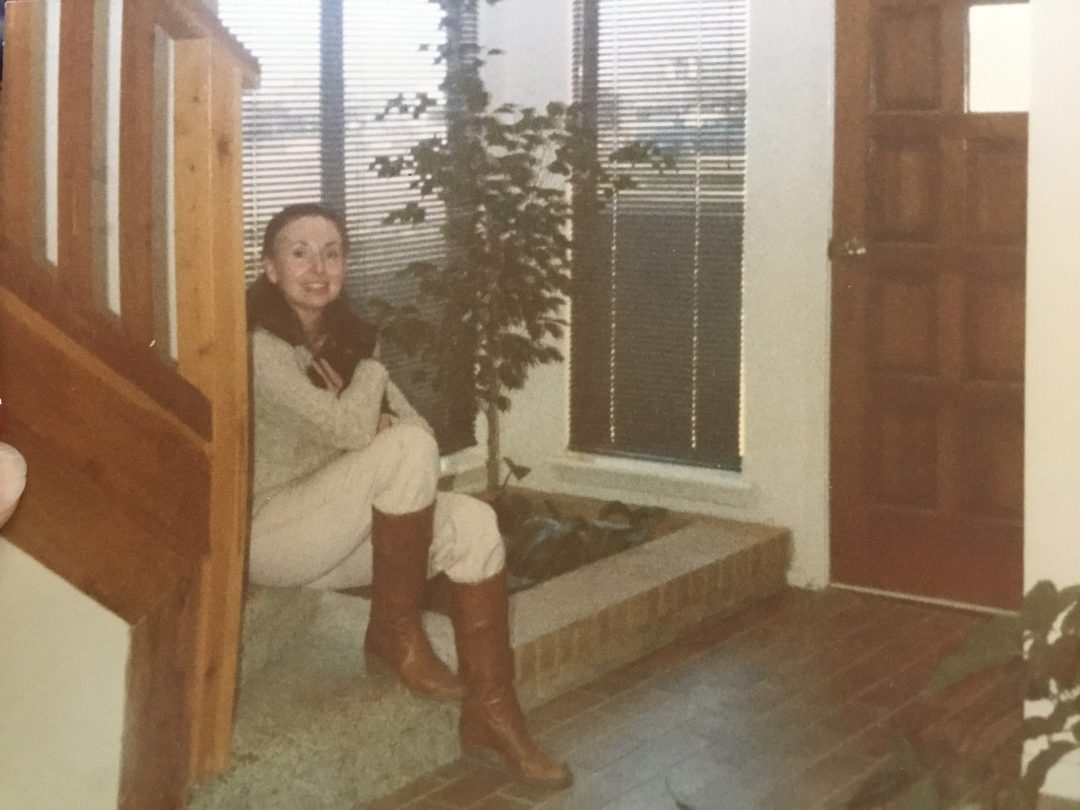My mother Gloria, 35-ish years ago, at around the time I sent the four-page typed letter.

A few weeks ago my three brothers, sister, and I needed to pack up some objects and papers from our past. We didn’t have much time, so our minds jolted into hyper-focus. Who would keep what? My grandfather’s diaries emerged out of a box of check registers and old bills; photos flew into boxes organized with labels like “Riverside” (for the street where we’d grown up) or “Pre-1950.” Then, I pulled from a pile of papers a four-page typed letter I’d sent to my mother when I was 23 years old and working as a journalist in a big city.
Our whirlwind organizing task is done. Now I pull out the letter. The words I read came from a stranger. I have forgotten half of the people in here. I can not believe how much time I spent back then at parties and events whose hosts I was meeting for the first time. My life was one big exploration of personalities.
I see reading my typed stream-of-consciousness that some people I had met tried to be kind and that I didn’t always notice. I can briefly inhabit those lonely, unhappy months in this letter. At the time, I was volunteering at a radio station. I loved that work, and I met so many people through the station that I had stopped trying to keep track of them all. After a folk concert one night (I wrote Mom) one radio buddy’s girlfriend drove me home. She listened gravely as I chattered about my tiring year at a small newspaper with almost no time off. As I climbed out of the car, she peered out at me and said, earnestly, “I hope you have a better fall.” Until that moment, I had not realized how much I had been complaining. Her kindness stopped me flat. I wrote Mom that I “secretly wished” the girl a good fall, too. But I apparently said nothing of it. “You should have answered her! You should have become friends with her!” my older self wants to scold my younger self.
My mother must have been somewhat horrified, too. But she did keep the letter tucked deep into one of her many baskets. She kept all of our letters, and programs, and scrawled little notes saying we were going to see a friend. So I know she had no special love of this letter. But she must have smiled when I told her I’d cooked her best spaghetti sauce: “Tonight I cooked your spaghetti recipe for my semi-gourmet friends,” I told Mom, “and they loved it so much that J—– wants the recipe and D– had seconds of a pasta dish, which he says he never does.”
And then came the inevitable sentences about money. “Please don’t worry about my financial situation or how I choose to handle it. If I need your help, for train fare or anything else, believe me, I’ll ask. The nice thing is knowing you’re willing to help, not that you feel you must. … I want to do as much as I can for myself. It means a lot to me.”
She knew it meant a lot to me, because she had cheered me on about living on my own. She had told me I could do that thing that she had not yet had a chance to try.
